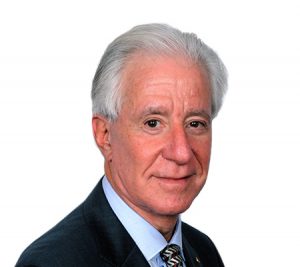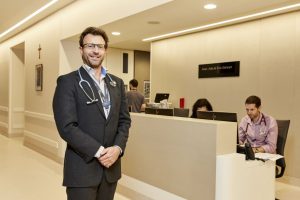The environment for private hospitals has moved at warp speed in response to the COVID-19 pandemic from a ban on elective surgery and possible closure to a deal from the federal government to secure their support for the national COVID-19 response.
With so many changes in just a week, the limbic checked in with a couple of clinicians to see how they were travelling in time and space.

Associate Professor Graham Newstead
Colorectal surgeon Associate Professor Graham Newstead, practices at the Prince of Wales Private Hospital in Sydney which is co-located with the public hospital where he also holds an honorary appointment.
“By ministerial directive we are now theoretically and officially one unit. Having said that, at the moment whilst preparing together for the worst case scenario, we are still working as we have always done, public and private separately,” he said.
“In the public hospital, there is no elective work anymore. Cat 1 is clearly anyone who comes in the front door and is in need of urgent attention. Cat 2 are patients who have a high risk need for assessment but not as urgent or life-threatening as bowel obstruction or heart attacks, etc. That is all that is being done. If you’ve got an inguinal hernia, forget about it. That’s not being done.”
“In the geographically co-located private hospital we have a theatre ready to do COVID-positive patients who need urgent surgery. We have a theatre ready for it which hopefully we will never use. And clearly our intensive care ward is well geared up for cases beyond what they routinely deal with, with a theoretical possibility that if it all went mad the public hospital would have maybe a ‘dirty’ ICU of COVID patients and the private hospital might carry all the urgent public hospital surgical patients needing an ICU but COVID negative.”
In his own practice, staff have been busy contacting and triaging patients and grilling them about their level of risk for COVID-19.
He said procedures usually performed in scrubs and gloves were now performed in full PPE.
“We are presuming that even if they had no indication of risk of COVID, that they have COVID. And the way in which I practice at the moment is I presume that I have COVID, not them, and that way I behave with everybody is as if I am trying to protect them against me.”
Patients with bleeding from the bowel that sounds suspicious can still have a colonoscopy as can people with a positive FOBT who have not had a recent good quality colonoscopy.
“Because if you defer them for more than six months, we have good statistical evidence to show that in the minority of the FOBT positives who turn out to have a cancer, you shift their cancer stage in those months from potentially curable to potentially incurable. So there is an argument to do them.”
“The rest of the recalls – the previous polyps or a first degree history of bowel cancer – if they have had a colonoscopy, there is no harm in saying to them to wait six months.”
“We are keeping our staff employed by having them ring patients, to check on their wellbeing, any symptoms of concern, etc.”
